11 Signs A Grown Daughter Feels Quietly Responsible For The Happiness Of Her Parents
While she may feel like a caretaker, it's not her job to 'babysit' her parents.
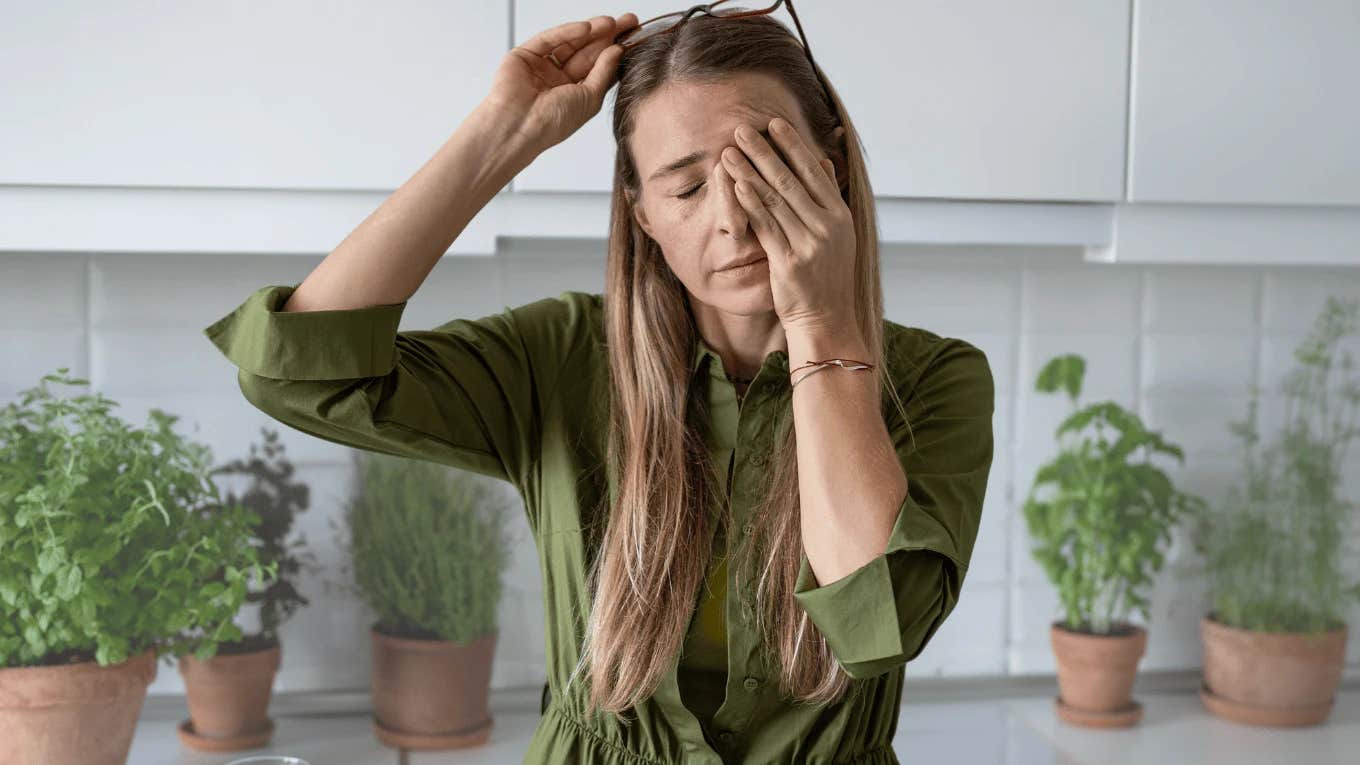 DimaBerlin | Shutterstock
DimaBerlin | Shutterstock Many adult children, especially those that grew up in unstable or emotionally volatile homes, experience "parentification," according to psychologist Ahona Guha — a role reversal within the family dynamic where they feel pressured to care for, support, or mediate their parents' behavior. Especially for young women, who are pushed further into caretaking and emotionally supportive roles within traditional family structures and society at large, it's not surprising that there are many grown daughters who grapple with guilt over their parents' well-being.
Many of the signs a grown daughter feels quietly responsible for the happiness of her parents are subtle, especially if she doesn't live at home or in the same city as her family. However, feeling a constant burden to care for them can still take a toll, especially as they navigate crafting their own adult lives, managing their own responsibilities, and even starting their own families.
Here are 11 signs a grown daughter feels quietly responsible for the happiness of her parents
1. She texts and calls often
 Ekateryna Zubal | Shutterstock
Ekateryna Zubal | Shutterstock
Many first-born women struggle with "eldest daughter syndrome" (EDS) — characterized by feelings of anxiety, responsibility, people-pleasing behaviors, and guilt — that encourages them to overstep their boundaries and suppress their own emotions to look out for their siblings and parents.
All of the experiences that characterize EDS are also signs a grown daughter feels quietly responsible for the happiness of her parents. It's possible that she's felt this kind of burden her whole life, mediating conflicts between her parents growing up, shielding her siblings from trauma, and people-pleasing to keep the peace at home.
In adulthood, when this eldest daughter moves away, she may stay overly connected on social media or by texting and calling often, trying to mediate and support from afar. While many do seek out independence, there can be inescapable feelings of guilt for women with EDS, encouraging them to sabotage their own autonomy for the sake of their families at home.
2. She mediates her parents' arguments
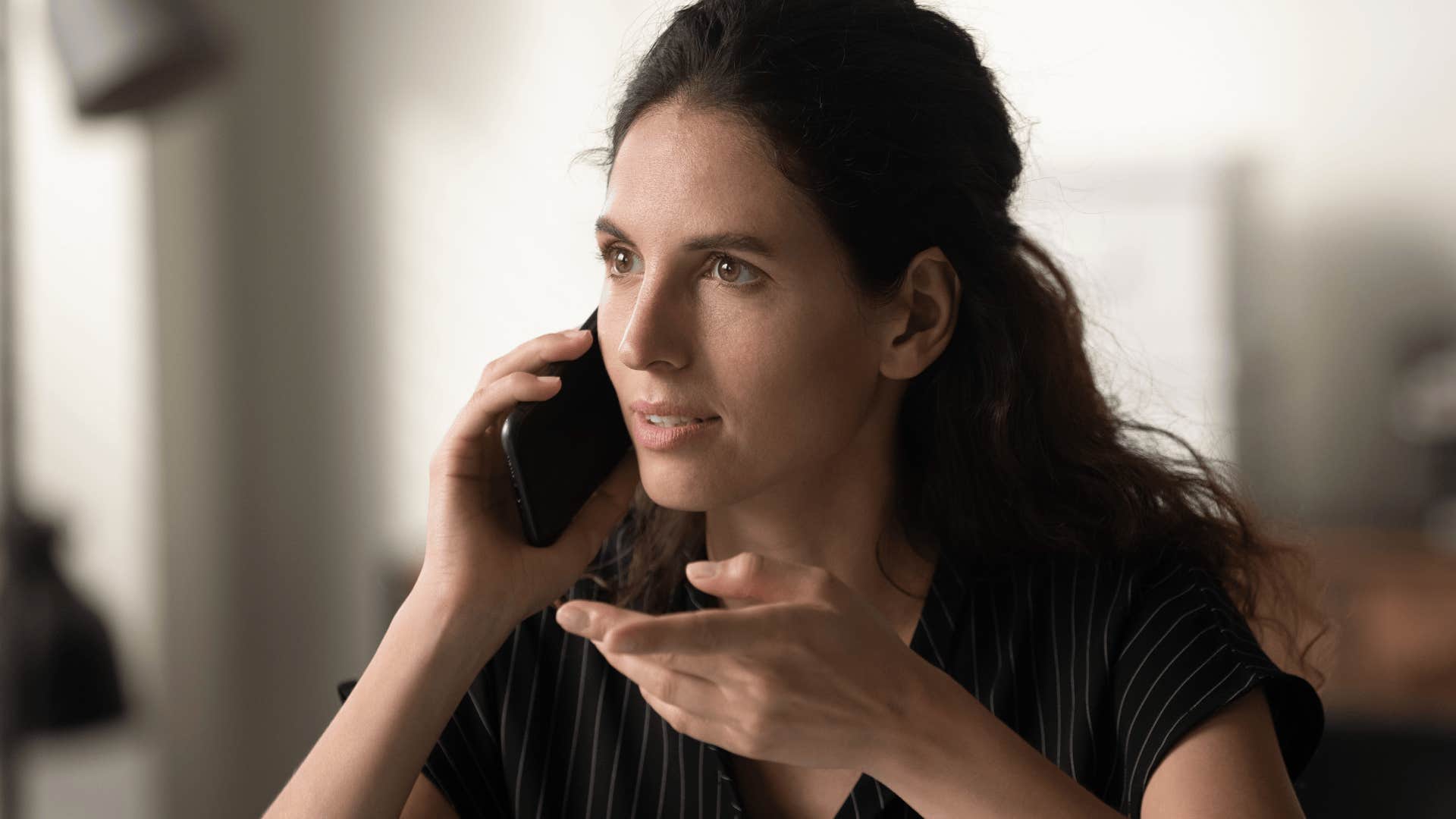 fizkes | Shutterstock
fizkes | Shutterstock
According to medical services manager Anna Kaminsky, many children take on the role of mediators when their parents fight growing up, but when they can't solve their problems or diffuse arguments, they start to believe that it's their fault. Into adulthood, eldest daughters can take this dual responsibility and guilt with them, finding it difficult to simply let their parents resolve conflicts on their own.
Especially when they feel an obligation to protect the peace or happiness of a specific parent, leaving and not making an effort to mediate, even from a different city or state, can feel like abandonment.
3. She's always pushing them to go to therapy
 Cristina RasoBoluda | Shutterstock
Cristina RasoBoluda | Shutterstock
According to a study from the Walton Family Foundation, Gen Zers are experiencing more mental concerns like anxiety and depression compared to older generations. On top of increased accessibility, largely impacting the increase in mental health diagnoses, Gen Z adults are also more comfortable seeking resources and support like therapy.
For Gen Z adults, many of whom are entering adulthood for the first time, this awareness and comfortability discussing mental health support can seep into their personal lives and family dynamics. In some cases, it certainly sparks tension, but it can also be a way to pressure older generations into seeking support.
Pushing therapy on their parents and encouraging them to acknowledge their mental health is one of the signs a grown daughter feels quietly responsible for the happiness of her parents, whether it's an attempt to distance herself from the role of a mediator or to share the benefits of therapy she's already experienced.
4. She views herself as a third caretaker for siblings
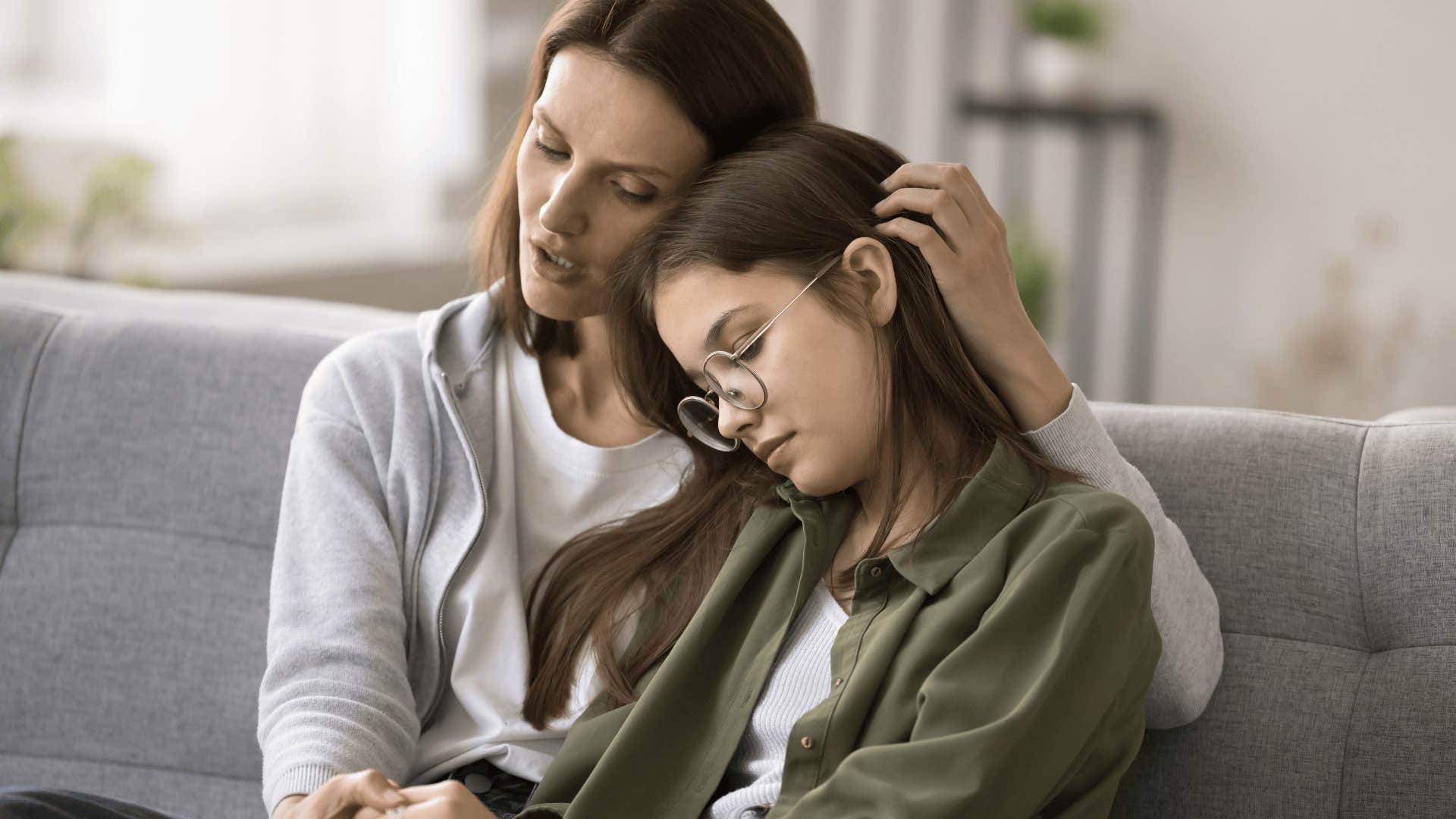 fizkes | Shutterstock
fizkes | Shutterstock
According to a study conducted by California State University, San Bernardino, many eldest daughters are assigned the role of caretaker for their younger siblings growing up. While there are certainly family dynamics where this encourages everyone to live a healthier life, experts from this study suggest it can come at a common disadvantage to grown daughters.
It only sabotages their emotional regulation skills into adulthood, it sparks tension and resentment in the parent-child relationship which can be equally anxiety-inducing and disillusioning for daughters simply hoping to protect the peace. Despite its consequences, taking on the responsibility and adopting the identity of "caretaker" to her younger siblings is damaging, especially at the expense of her own well-being.
5. She sends them money
 Ekateryna Zubal | Shutterstock
Ekateryna Zubal | Shutterstock
A study from AARP suggests that many adult children today are financially supporting their parents at home, despite struggling with basic necessities and rising costs themselves. This tendency to send money home or help their parents out with purchases is one of the signs a grown daughter feels quietly responsible for the happiness of her parents.
Whether they're pressured into it or sending money of their own volition, financial assistance can be a contentious and controversial behavior in family dynamics, sparking resentment and disconnection before family members are even aware it's happening.
6. She makes excuses for their misbehavior
 Perfect Wave | Shutterstock
Perfect Wave | Shutterstock
Many eldest daughters and adult children can't help but to make excuses for their parents' ignorance or misbehavior, especially if they grew up in a dynamic where their parents were "always right" and expected all-encompassing loyalty.
By making excuses, taking misguided accountability, and even victimizing their parents to people-please, eldest daughters find ways to protect their parents happiness, even at the expense of a healthy relationship or self-awareness.
Of course, not everything is inherently toxic or rooted in childhood trauma — they can be wildly innocent. An empathetic adult daughter might make excuses to give her parents the benefit of the doubt or support them through hardship, fostering a healthy dynamic where they're mutually benefitted.
7. She struggles to set boundaries with her family
 fizkes | Shutterstock
fizkes | Shutterstock
Psychotherapist Ilene Strauss Cohen, PhD doesn't just suggest that boundaries are beneficial to family dynamics, especially for adult children, she argues that they're required and essential. To protect against resentment, foster healthy communication, and ensure everyone's needs are met, you have to have stable and communicated boundaries.
A daughter's tendency to disregard these boundaries — putting her own needs aside for the sake of her parents — is largely a learned people-pleasing behavior from growing up. This lack of self-advocacy and communication only deteriorates the family dynamic over time and sparks deep resentment.
8. She's a chronic people-pleaser
 fizkes | Shutterstock
fizkes | Shutterstock
In the case of a grown daughter who grew up with emotionally manipulative, immature, or narcissistic parents, it's also true that people-pleasing could be one of the signs she feels quietly responsible for their happiness, and it's become a learned behavior.
If her parents weaponized her emotions growing up, urging her to suppress or avoid them for the sake of keeping peace at home, or even burdened her with responsibility for their own emotional instability, grown daughters can continue to people-please into adulthood out of sheer familiarity.
Of course, this behavior and the low self-esteem that this upbringing tends to spark doesn't just affect family dynamics into adulthood, it also sabotages adult children's ability to make healthy relationships with others.
From peer relationships at work, to friendships, and more intimate connections, they seek out toxic people who mirror the comfortability of their parents, according to relationship specialist Annie Tanasugarn PhD, no matter how unhealthy their behaviors may be.
9. She quietly neglects her own needs
 Ground Picture | Shutterstock
Ground Picture | Shutterstock
Adult children tend to value and seek out independence early in life, oftentimes sparking a kind of natural disconnect in the parent-child relationship. However, many grown daughters grapple with this disconnect, feeling responsible for their parents' discomfort or guilty for "leaving them" to navigate life without their input, help, or guidance.
One of the signs a grown daughter feels quietly responsible for the happiness of her parents is her tendency to neglect her own needs. She views independence and emotional expression as a burden to the well-being of her family, encouraging her to avoid and suppress her needs to "better" show up for them.
However, like in any relationship, suppressing emotions and refusing to strike a positive balance of support is detrimental to everyone's health. Not only will grown daughters be forced to live in a constant state of anxiety over their parents' well-being, they'll consistently set their own needs aside for their benefit.
10. She's the 'go-to person,' despite having her own life
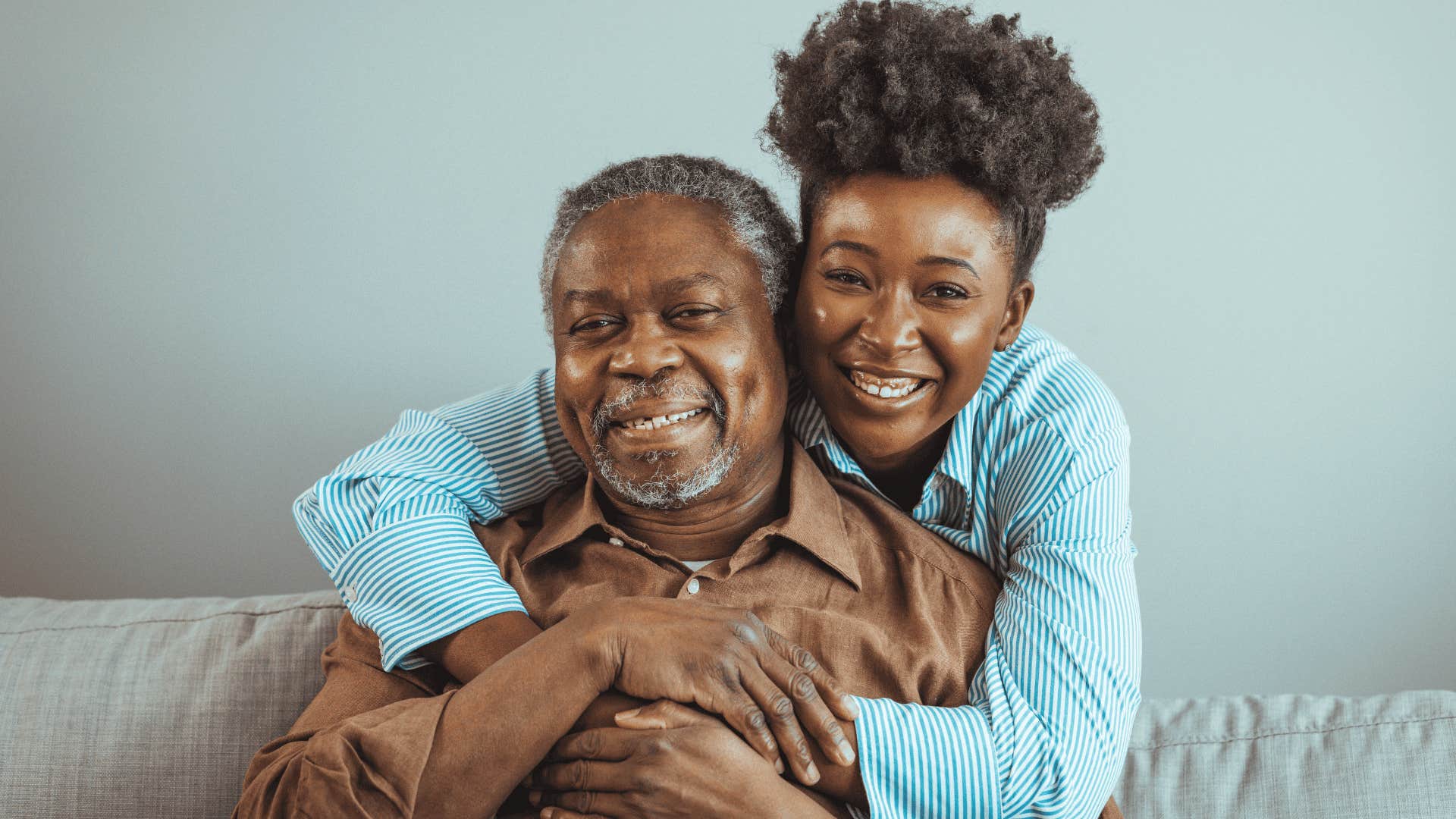 Dragana Gordic | Shutterstock
Dragana Gordic | Shutterstock
Many adult children, especially women, take on the inherent role of a caretaker in their family dynamics, even once they've left home. Whether it's emotional labor, childcare, or even household chores, they're expected to bear the responsibility of taking care of their siblings and aging parents, at the expense of their own time and well-being.
Of course, in certain circumstances, it's possible to overcome these gendered stereotypes and strike a positive balance, but when a daughter feels responsible for her parents' happiness, she may be unable to advocate for that need.
Rather than stir up an argument or make more emotional labor for herself, many grown daughters prefer to make themselves available 100% of the time — being the "go-to person" for her parents, whether it's comforting her mother after an argument or picking up her siblings from school.
11. She feels guilty for expressing her needs at home
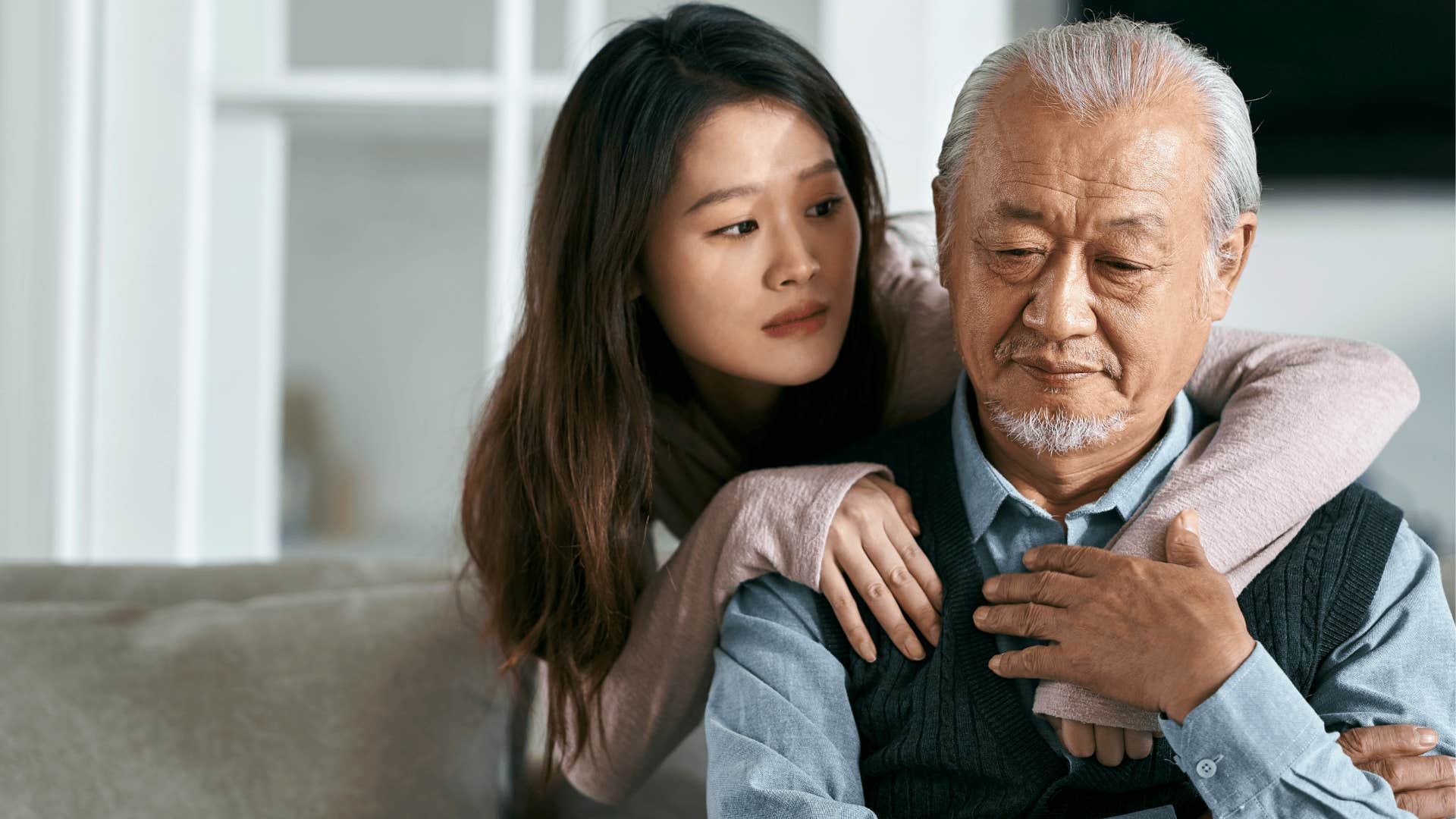 imtmphoto | Shutterstock
imtmphoto | Shutterstock
According to licensed psychologist Jonice Webb, PhD, feeling guilty for expressing your feelings or needs in a relationship can also be a sign of emotional neglect. If you've always been the person mediating arguments, reassuring your parents, or caring for your siblings, you may operate under a misguided truth that you don't have time or space to acknowledge your own needs.
But it's impossible to burden yourself with responsibility over other people's happiness and well-being, especially for an adult child. People make their own choices, prioritize what they want, and craft their lives with intentional decisions. Don't let another person's bad mood, emotional instability, or consistent immaturity affect your well-being.
Many grown daughters burden themselves with responsibility without even realizing it. Occasionally, this encourages them to spend more healthy quality time with their family, but it can just as easily lead to overstepped boundaries and emotional overwhelm.
Zayda Slabbekoorn is a staff writer with a bachelor's degree in social relations & policy and gender studies who focuses on psychology, relationships, self-help, and human interest stories.

